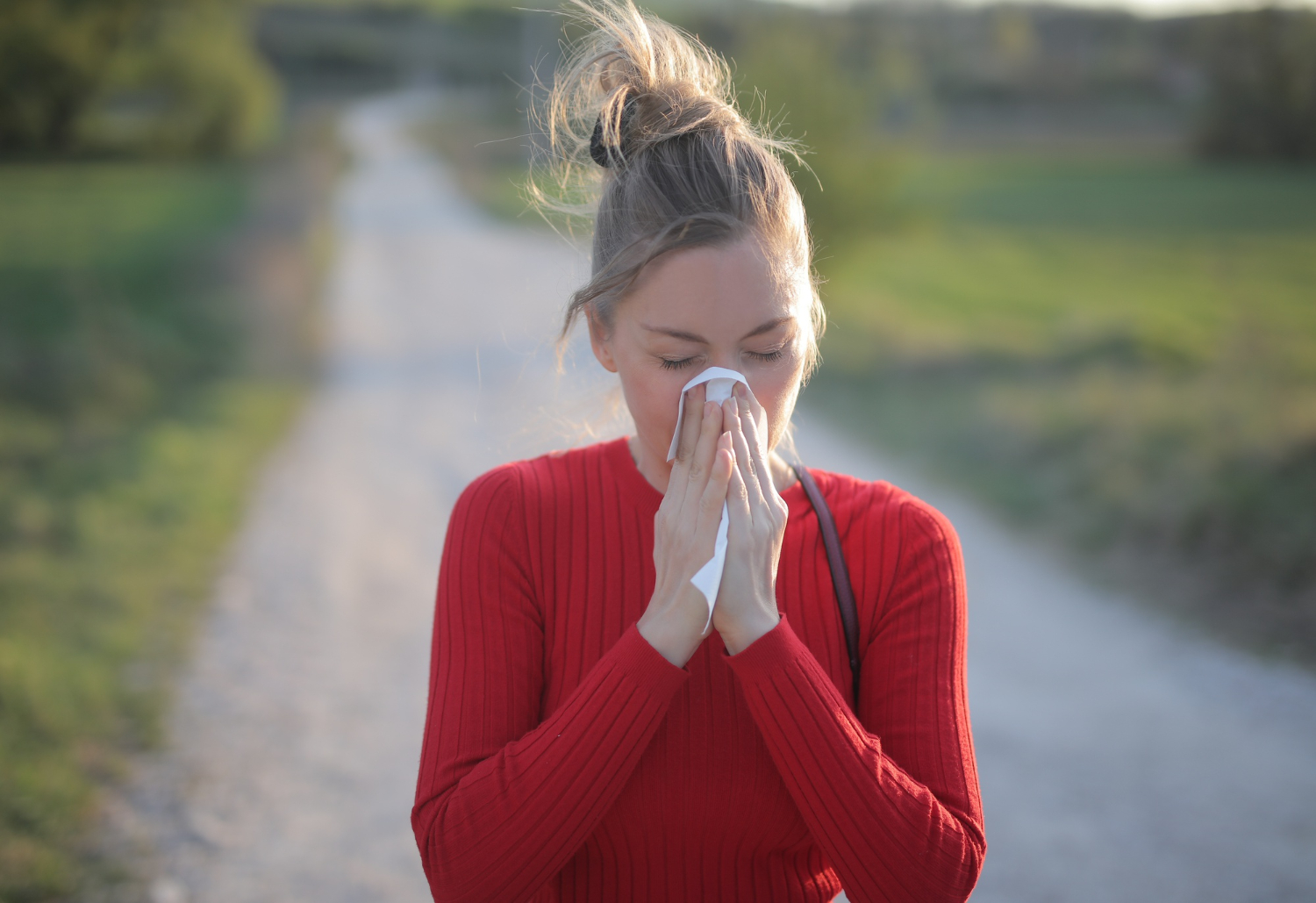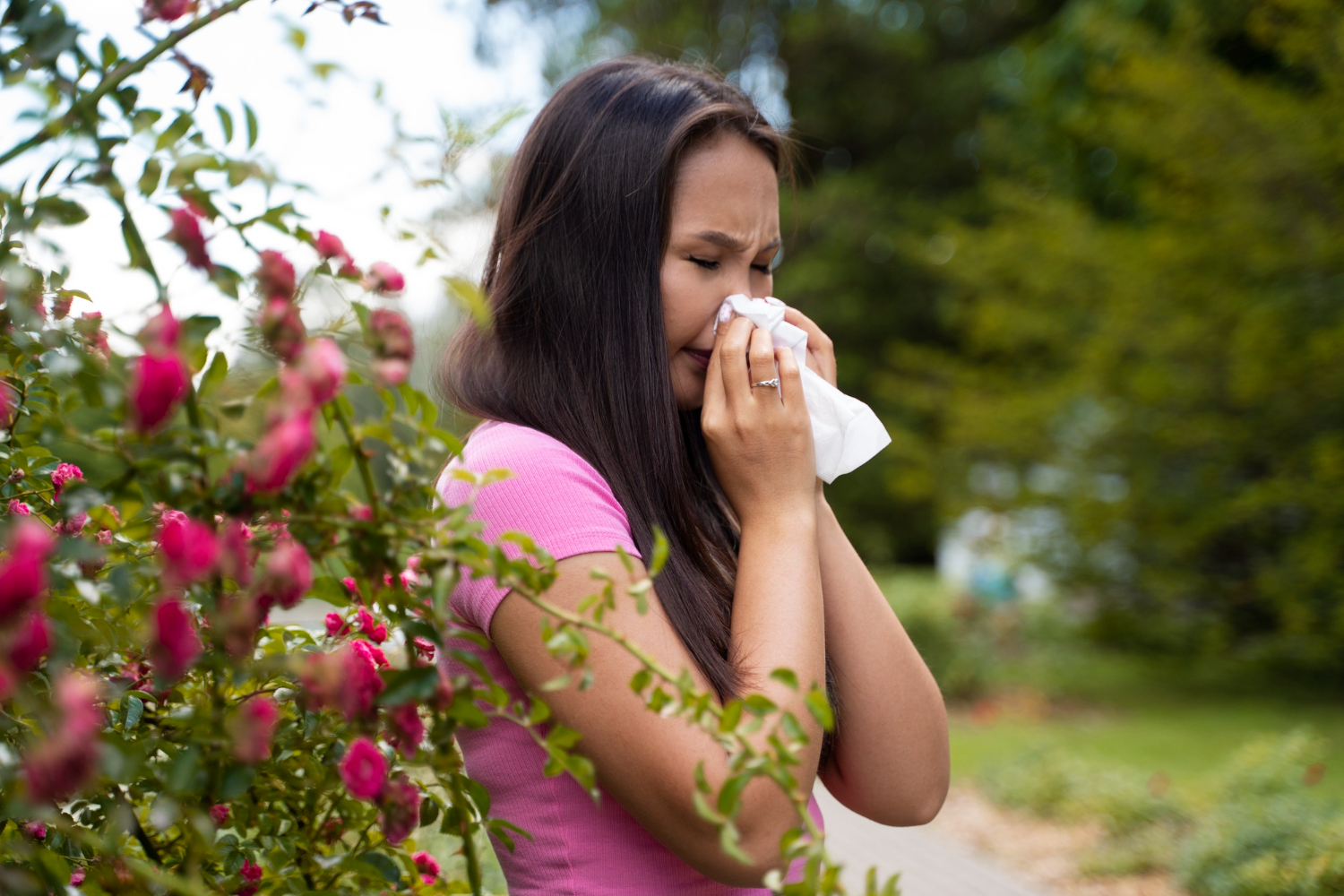
Grass Allergy Foods to Avoid
As spring and summer arrive, so does grass pollen season, which can be challenging for many with allergies. If you suffer from uncomfortable symptoms such as sneezing, coughing, and wheezing during these seasons, they are primarily caused by grass pollen in the air.
Certain fruits and vegetables exacerbate these symptoms due to a condition known as Pollen Food Allergy Syndrome (PFAS), where the proteins in these foods cross-react with grass pollen.
Identifying and avoiding cross-reactive foods that cause these reactions is crucial to managing these allergies effectively, especially during peak pollen seasons.
This guide provides comprehensive advice on managing grass-food allergies, including a detailed list of foods that might trigger symptoms and various treatment options to help reduce discomfort during this time.
So, let’s explore everything you need to know to stay comfortable during grass allergy season.
What are the Symptoms of a Grass Allergy?
At its core, this grass allergy is the body’s overreaction to grass pollen. When inhaled/on contact, someone’s allergy-prone immune system will see this pollen as a threat, leading to bothersome symptoms such as runny nose, itchy eyes, and even skin rashes. This can be more intense on windy, pollen-heavy days.
Weather and location play a role in the severity of symptoms, which can be mild or highly disruptive. It’s not just about a runny nose; for some, grass pollen can aggravate conditions like hay fever and asthma, causing additional discomfort.
The impact of grass allergies isn’t limited to physical symptoms. They can also disrupt sleep, lower energy levels, and affect focus and productivity.
Dealing with grass allergies involves avoiding pollen and using medications like antihistamines. For severe cases, immunotherapy can be life-altering. Understanding the triggers and symptoms is critical to managing this allergy effectively and maintaining comfort during peak seasons.
Foods to Avoid to Prevent Grass Allergy
You might want to look closely at your diet when dealing with a grass allergy. Perhaps you are suffering from Pollen Food Allergy Syndrome or Oral Allergy Syndrome.
Here’s the thing: some fruits and vegetables have proteins similar to grass pollen. When someone with a grass allergy eats these foods, especially during the pollen season, their body might get confused. This can lead to itching or swelling in the mouth and sometimes even more severe allergy symptoms.
So, what foods are we talking about? Well, it’s a bit of a list, but some of the most common ones include:
- Celery
- Peaches
- Tomatoes
- Melons (like cantaloupe and honeydew)
- Oranges
- Peanuts
But remember, not everyone with a grass allergy will react to these foods. If you notice certain foods triggering your allergy symptoms, it is worth discussing this with your doctor or allergy specialists like Frontier Allergist.
Doing so will help you figure out which foods to avoid. You can learn how to maintain a balanced diet without those trigger foods.
How to Prevent Grass-Allergy Foods
It is important to note the proteins in the pollen rather than the grass itself. Reactions can occur with certain foods that share similar proteins with grass pollen.
Here are some tips to help prevent and manage your grass allergy food reactions-
Identify cross-reactive foods
Certain foods like tomatoes, melons, oranges, peaches or celery cross-react, causing mild oral discomfort with tingling or itching.
Cook your food
The best and simplest way of breaking down proteins that cause grass food allergy symptoms is by cooking food. Consider eating well-cooked meals and note down your changed reactions for future reference.
Choose food with a low-allergen count
Consider foods that are less likely to cross-react with grass pollen.
Read food labels
Before you consume any food, read the ingredients. This way, you can avoid consuming potential allergens.
Consult an allergist
It is always a good idea to consult an allergist to know what you are dealing with and what changes will help you instead of using a trial-and-error method.
Carry medications
If you get severe allergy reactions, carry medications like antihistamines, epinephrines or the medicine prescribed by your allergist.
Individual responses to foods vary; not everyone with grass pollen allergies experiences cross-reactive allergy to foods. If you suspect food allergies, contact us. We offer proper testing, tailored guidance and consultations to help your unique situations best.
Treatment for Grass-Food Allergy
If grass allergy foods are giving you a hard time, there’s good news: several treatment options can help alleviate your symptoms. And if you’re considering treatment from a place like Frontier Allergist, you’re looking at a far-reaching approach that includes the latest methodologies in allergy management.
- Over-the-Counter Medications: Antihistamines, nasal sprays, and decongestants can quickly relieve mild symptoms. They’re easy to access and can be quite effective.
- Prescription Medications: For more severe symptoms, your doctor might prescribe stronger antihistamines or nasal sprays.
- Allergy Shots (Immunotherapy): These are a game changer for many. Allergy shots gradually expose your body to the allergen, helping it build tolerance over time. This method significantly reduces the severity of your symptoms and leads to long-term relief.
- Sublingual Immunotherapy: Similar to allergy shots, this treatment involves placing a tablet containing a small dose of the allergen under the tongue daily.
- Lifestyle Modifications: Simple actions like cooking foods, avoiding common grass-food allergens, washing raw fruits and vegetables, and some lifestyle changes can make a big difference.
- Consultation with Specialists: You’d likely undergo thorough testing to identify specific allergies at a place like Frontier Allergist. Based on these results, we customize a treatment plan that combines the above methods.
- Patient Education: Understanding your allergy and how to manage it is a crucial part of treatment. We often provide educational resources to help you understand your condition and how to live with it.
Managing your grass-food allergy is about finding the right combination of treatments that work for you. This is why consulting with allergy specialists can provide a tailored plan to improve your quality of life and keep your symptoms in check during allergy seasons.
Frequently Asked Questions
How do you test for OAS?
Oral Allergy Syndrome (OAS), now more commonly known as Pollen Food Allergy Syndrome (PFAS), is often diagnosed based on symptoms and a medical history review.
If you experience itching or swelling in your mouth after eating certain fruits or vegetables, it’s a sign. An allergist might perform a skin prick or blood test to confirm the allergy. We’ll check for a reaction to specific pollen that could be causing your symptoms.
What questions should I ask my doctor?
When discussing grass allergy foods with your doctor, consider asking about the most effective treatments for your symptoms, potential lifestyle changes or home remedies, the possibility of allergy shots or long-term treatments, managing allergies during high pollen seasons, and if there are any specific foods that you should avoid.
How long does grass allergy last?
The duration of grass allergy symptoms depends on where you live and the length of the grass pollen season in your area. Typically, grass pollen levels are highest during late spring and early summer.
If you’re allergic, you might experience symptoms during these months. In warmer regions, the season can be longer, sometimes extending year-round. The actual daily duration of symptoms can vary based on exposure and individual sensitivity.
Are you Suffering from Allergies?
If you’re nodding in agreement to the sneezes, itchy eyes, and runny nose we’ve talked about, you might be grappling with allergies. Remember, you’re not alone in this! Allergies are common but don’t have to take over your life. With the right strategies and treatments, you can manage your symptoms and enjoy your days, regardless of the season.
If you’re looking for personalized care and effective treatment plans, consider reaching out to Frontier Allergist. We specialize in diagnosing and treating various allergies, including grass pollen. Our team of experts can provide you with the best advice tailored to your unique needs.
Don’t let grass allergies keep you from enjoying beautiful days. Take the first step towards better allergy management by visiting Frontier Allergist.
Schedule an appointment today and breathe easier tomorrow!

Written/Reviewed by: Dr. Neha Reshamwala
NPI number: 1780874578
Page last reviewed:


 All blog posts
All blog posts




